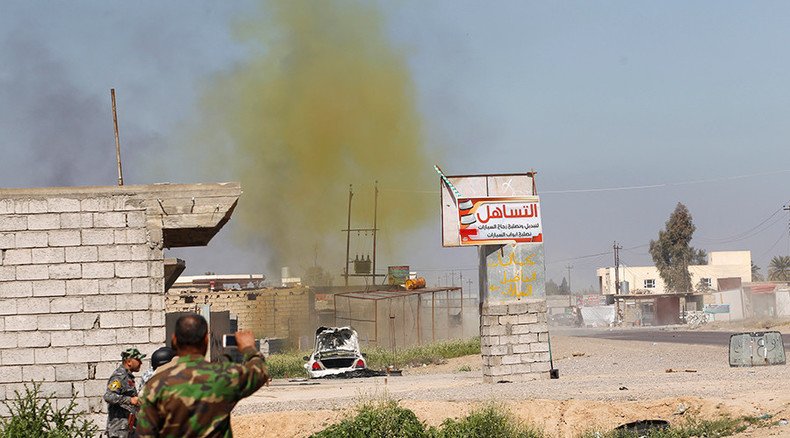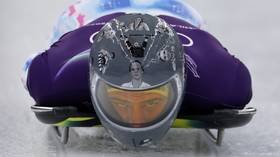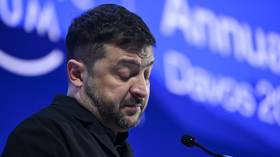‘ISIS used chemical weapons in Iraq in August’: Kurds cite blood tests

Islamic State militants used mortar rounds containing a mustard agent against Kurdish Peshmerga troops fighting in northern Iraq in August, Kurdish representatives said, citing the analyses of blood samples taken from 35 combatants.
“Signatures of sulfur mustard” were discovered in blood samples of 35 Kurdish fighters, who were exposed southwest of the regional capital of Erbil, Reuters reported, citing a statement by the so-called Ministry of Peshmerga Affairs.
Peshmerga are the military forces of the autonomous region of Iraqi Kurdistan, which are managed by a separate ministry of the local government.
The troops sustained wounds characteristic of the agent, which is banned under the Chemical Weapons Convention of 1997, the statement added. The August attack involved 37 mortars “releasing white smoke and a black liquid” upon detonation.
The statement didn’t specify the number of Peshmerga fatalities incurred in the attack or the severity of the wounds suffered by the troops.
BREAKING: #ISIS militants in #Iraq, #Syria have WMD components, #Lavrov warns UNSC http://t.co/XgXkSvBAVppic.twitter.com/A0y9BO4mM0
— RT (@RT_com) September 30, 2015According to the Kurdish military, the samples were tested in a laboratory outside Iraq, where they were delivered with the help of members of the “Global Coalition against ISIL.”
The letter also called on countries fighting Islamic State (IS, formerly ISIS/ISIL) in Iraq and Syria to provide the Kurdish Peshmerga with equipment to protect them from chemical attacks.
Mustard gas causes painful burns and blisters that have a strong immobilizing effect on those who come into contact with it. However, the chemical has to be present in large quantities to become deadly.
The Ministry of Peshmerga Affairs said that IS carried out an attack with “weaponized chlorine” in January and has used chemical weapons on at least four other occasions in 2015.
READ MORE: Islamic State using chemical weapons in Iraq & Syria – report
In mid-September, the BBC cited an unnamed US official who claimed that Islamic State has put together a group to produce toxic chemicals such as mustard and chlorine gas.
“We’ve seen them use it on at least four separate occasions on both sides of the border – both in Iraq and Syria,” the official said at that time.
LISTEN MORE:












